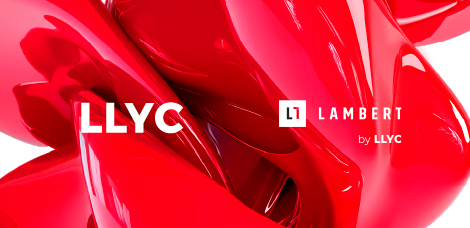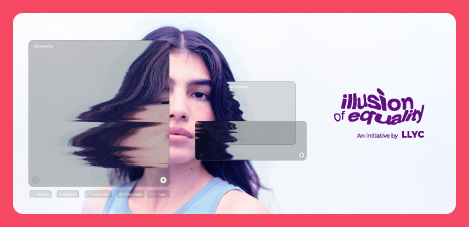
-
TrendsPublications and Reports
-
CountriesGlobal
To address the ongoing discrimination and daily microaggressions against the LGBTQI+ community, driven in part by biases against their voices, global Corporate Affairs and Marketing consulting firm LLYC today announced the launch of Free the Voices, the world’s first diverse synthetic voice bank. Developed in collaboration with Monoceros Labs and their online voice studio Fonos, this innovative project aims to raise awareness about voice-related biases while contributing to a more inclusive digital environment. The voices produced will be available at freethevoices.llyc.global for anyone to use, enabling audiovisual productions and projects to reflect greater diversity.
The project stems from the finding that voice continues to be one of the factors that contributes to multidimensional discrimination of the collective. Studies show that people prefer to interact with a heterosexual voice (69%) versus a “gay” voice (31%), a bias that unfolds and becomes more evident in other spaces, such as workplaces, where discrimination figures range from 32% to 37% of LGBTIQ+ people have claimed to have been discriminated against for acting gay, including how they speak.
In an increasingly digital world, AI-generated voices are becoming more prevalent across numerous platforms, but most of them are built based on cisgender and heteronormative samples. Free the Voices seeks to change that. Created from over 250 voices collected from LGBTQI+ community members from across 12 countries, it will make numerous diverse voices available for various audiovisual content, for free. It seeks to educate society about the biases associated with recognizably LGBTQI+ voices and increase exposure to vocal diversity.
“Voice-based discrimination still affects so many people, especially within the LGBTQI+ community,” said David Gonzalez Natal, LLYC’s Partner and project leader. “When someone’s voice doesn’t fit societal expectations, they can face prejudice and microaggressions, leading many people to change the ways they speak or hide their true voices. This only adds to the invisibility and stigma surrounding recognizably LGBTQI+ voices, which is a shame because vocal diversity should be celebrated.”
LLYC worked LGBTQI+ advocates around the world, including Redi (Spain), Pride Connection Mexico, Casa Frida (Mexico), and the Chamber of Diversity in Colombia, to ensure authenticity and avoid perpetuating stereotypes during the synthetic voice design process. After collecting the data, Monoceros Labs conducted a rigorous anonymization and synthesis process to safeguard individual identities while preserving the diversity of the voices created. This approach ensured that people of all orientations, genders, nationalities, accents, and age groups were involved, avoiding any outside prejudices on what constitutes an authentic “LGBTQI+ voice.”
Alongside these voices, LLYC is launching the “Free the Voices: Voice, Diversity, and Technology in the Age of AI” report to explore how voice biases contribute to discrimination against the LGBTQI+ community and examine how synthetic voice technologies can mitigate these biases by increasing exposure to diverse voices.
“The project shows how AI can be used to promote fairness and diversity in all aspects of life,” Natal highlighted. “Everyone is invited to explore the new synthetic voices, share their voices to create new ones, and, most importantly, use them to help build a more inclusive world.”



